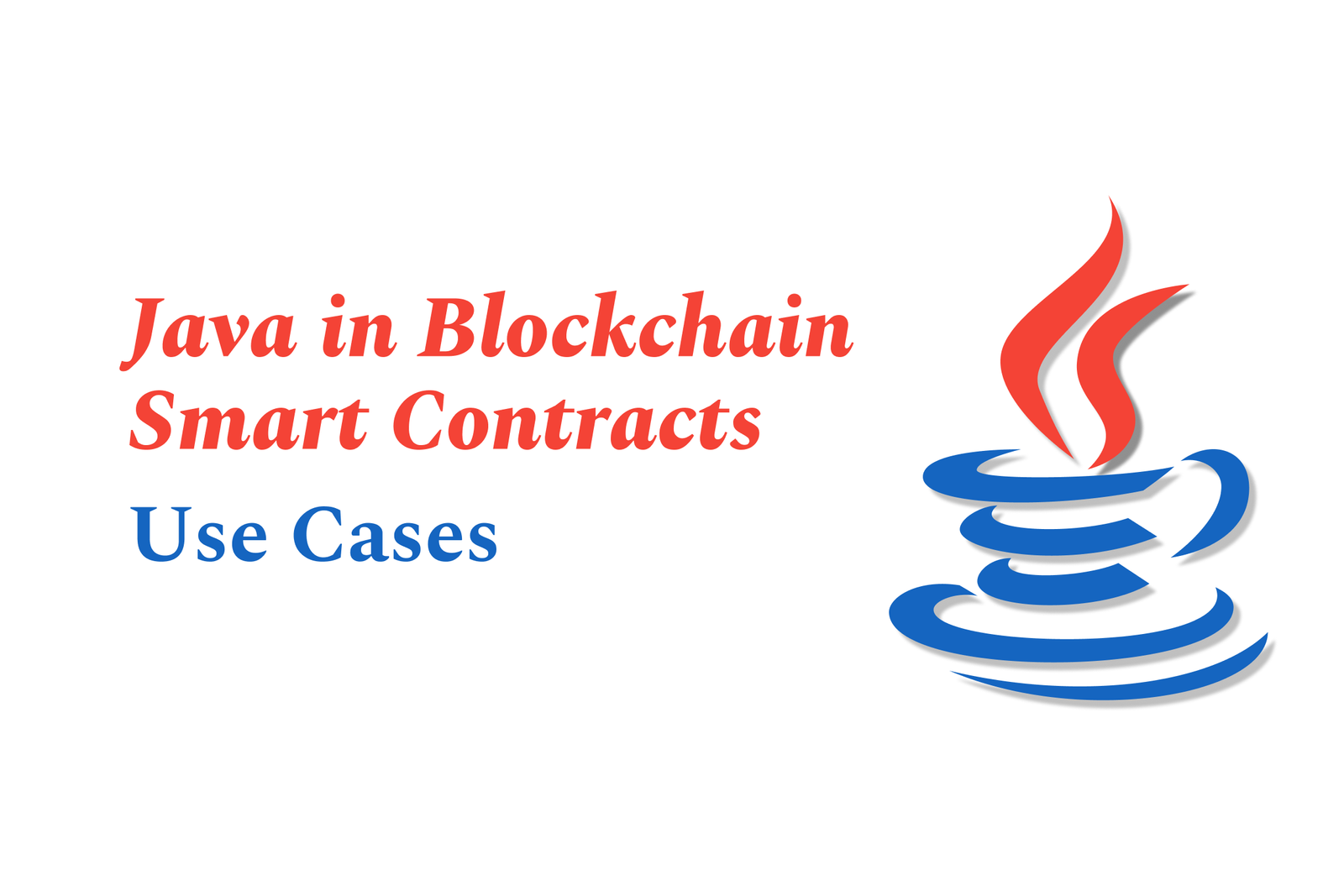Java in blockchain smart contracts: Use cases
Java plays a key role in blockchain smart contracts by enabling secure, efficient programming of automated agreements across industries like finance, supply chain, and healthcare. Its robust ecosystem supports platforms like Hyperledger Fabric, streamlining contract execution and enhancing business processes.
Java in Blockchain Smart Contracts: Use Cases
1 ) Overview of Smart Contracts
Smart contracts are digital programs on blockchain networks that automatically execute agreed terms when predefined conditions are met. Originating in the 1990s by Nick Szabo and popularized with Ethereum, they eliminate intermediaries, enhance security, transparency, and efficiency in executing contracts.
2 ) Benefits of Smart Contracts
Elimination of Middlemen: Removes brokers and lawyers, reducing transaction costs.
Speed and Efficiency: Automates processing and execution for quicker agreements.
Trustless System: No need for trust between parties due to blockchain's secure architecture.
Immutability and Security: Blockchain ensures data integrity and encryption making contracts tamper proof.
3 ) Java for Smart Contract Programming
Java, alongside languages like Kotlin and Daml, serves as a powerful tool to develop smart contracts due to its robust ecosystem, ease of use, and enterprise adoption. Java is notably used for blockchain platforms such as Hyperledger Fabric and others that support chaincode or smart contract deployment in Java.
4 ) Use Cases of Java Based Smart Contracts
Financial Services: Automating payments, clearing financial transactions, managing digital cash and collateral, thus streamlining operations and reducing manual errors.
Supply Chain Management: Tracking goods, ensuring payments upon delivery, and mobilizing assets securely and transparently.
Insurance: Automatic claims processing based on verifiable data, improving user experience and reducing fraud.
Healthcare: Safeguarding information management with secure digital contracts for patient data and treatment workflows.
Gaming and Media: Creating new models of user engagement and media rights management through programmable contracts.
Government and Public Sector: Enhancing trust and data protection in voting systems and public records.
Sports Wagering: Managing betting contracts automatically to ensure fairness and adherence to rules.
5 ) Blockchain Platforms Supporting Java Smart Contracts
Hyperledger Fabric: Uses Java to write chaincode, enabling modular and secure smart contracts for enterprise blockchain solutions.
XRP Ledger: Employs conditionally held escrows and oracles to enable secure, automated contract execution, sometimes interfaced through Java based applications.
Ethereum and Compatible Chains: While primarily Solidity based, Java SDKs and tools exist to interact and deploy smart contracts.
6 ) Technical Aspects of Java Smart Contracts
Java smart contracts encapsulate the business logic defining transactions, packaged often as chaincode (in Hyperledger Fabric terminology). These contracts interact with the ledger to enforce rules like ownership transfers or payment releases. Multiple smart contracts can be bundled within one Java chaincode package, supporting complex business models.
7 ) Conclusion
Java, leveraging its maturity and enterprise friendliness, is a significant language in blockchain smart contract development. It provides varied use cases across industries, facilitating automated, secure, and efficient contract execution on blockchain networks. The ecosystem continues to evolve with improved tools, frameworks, and adoption in diverse sectors such as finance, supply chain, healthcare, and beyond.
https://justacademy.in/news-detail/the-surprising-benefits-of-react-native-in-education-apps
https://justacademy.in/news-detail/android-anti-theft-feature-improvements
https://justacademy.in/news-detail/swiftui-for-mac-catalyst:-building-cross-device-apps
https://justacademy.in/news-detail/upcoming-android-features-announced-by-google
https://justacademy.in/news-detail/devtools-updates-flutter-devs-should-know
Related Posts
In 2025, top Angular libraries offer modern, feature-rich components and tools for building dynamic web apps. From powerful data grids to low-code platforms like UI Bakery, these libraries enhance development speed, UI design, and scalability, making them essential for Angular developers.
Migrating from AngularJS to Angular 17 involves gradually upgrading your app by running both frameworks together using tools like ngUpgrade, rewriting components in TypeScript, and adopting Angular’s modern architecture to enhance performance, maintainability, and long-term support.
Angular state management tools help organize and handle app data efficiently, improving scalability and maintainability. Popular options include NgRx for robust, RxJS-based patterns, and newer Signal Store solutions that offer simpler, reactive approaches integrated tightly with Angular’s latest features.
RxJS in Angular empowers developers to manage asynchronous data streams with powerful operators like `forkJoin`, `combineLatest`, and `zip`. Mastering these key operators in 2025 is essential for building efficient, reactive applications that handle complex event sequences seamlessly.
Angular performance optimization in 2025 focuses on improving app speed and responsiveness by using techniques like OnPush change detection, lazy loading, efficient data caching, and AOT compilation. These practices reduce load times, enhance user experience, and ensure scalable, fast Angular applications.
In 2025, Angular remains preferred for large-scale, enterprise apps with its robust, all-in-one framework, while Vue attracts developers seeking simplicity and fast development for smaller projects. Both frameworks excel, with choice driven by project needs and team expertise.
Angular Signals are a new reactive primitive in Angular 16 that enable fine-grained, efficient change detection by automatically tracking dependencies and updating only affected parts of the UI. They simplify state management and boost app performance, revolutionizing Angular's reactivity model.
Angular interview questions to prepare in 2025 focus on core concepts like components, directives, data binding, routing, and dependency injection, along with TypeScript mastery and latest Angular features to ensure strong practical knowledge for building scalable, efficient web applications.
AngularJS reached its official end of support in January 2022, meaning no further updates or security patches. To ensure app security and performance, developers should consider migrating to modern Angular versions or seek third-party long-term support options if immediate migration isn’t possible.
The Angular Roadmap 2025 highlights upcoming features focused on improving developer experience and performance, including zoneless Angular, Signals integration, enhanced Forms, async data handling, improved HMR, and expanded Angular Material/CDK enhancements, driving modern, efficient web app development.










